Five Ways UNICEF is Winning the Fight Against Malnutrition
By Mehak Srivastava, UNICEF Canada
Over the past three decades, global efforts to fight child malnutrition have contributed to a 60% drop in child mortality globally.
But our work is far from over. Malnutrition remains one of the most serious threats to children’s lives. It weakens immune systems, stunts growth and can be deadly if left untreated. Shockingly, nearly half of all deaths among children under five are linked to malnutrition.
The good news is that the fight against malnutrition is winnable if solutions reach children when they need them most. Here are five ways UNICEF and our partners are making that happen:
A Simple Measuring Tape
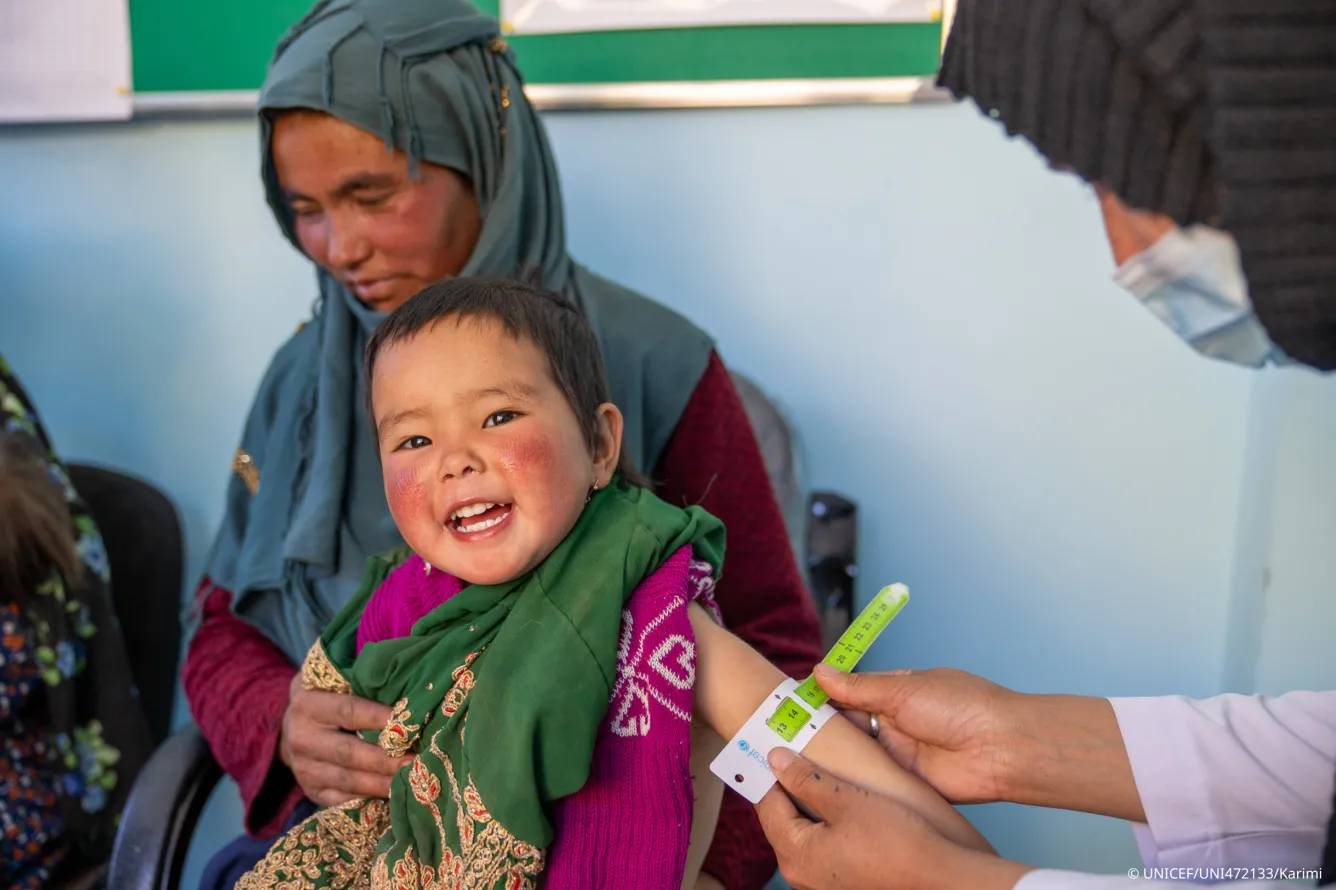
At a healthcare clinic in Bamyan, Afghanistan, three-year-old Mashkat is being screened for malnutrition. This simple, colour-coded tape, known as a mid-upper arm circumference or MUAC tape, is often used by health workers as the first step in catching malnutrition. The good news for Mashkat? Green means she’s in the clear!
MUAC tapes are mainly used to measure the upper arm circumference of children but can also be used for pregnant women to help identify cases of malnutrition. These early check-ups are crucial to detect and treat before it becomes deadly.
Ready-to-Use Therapeutic Food
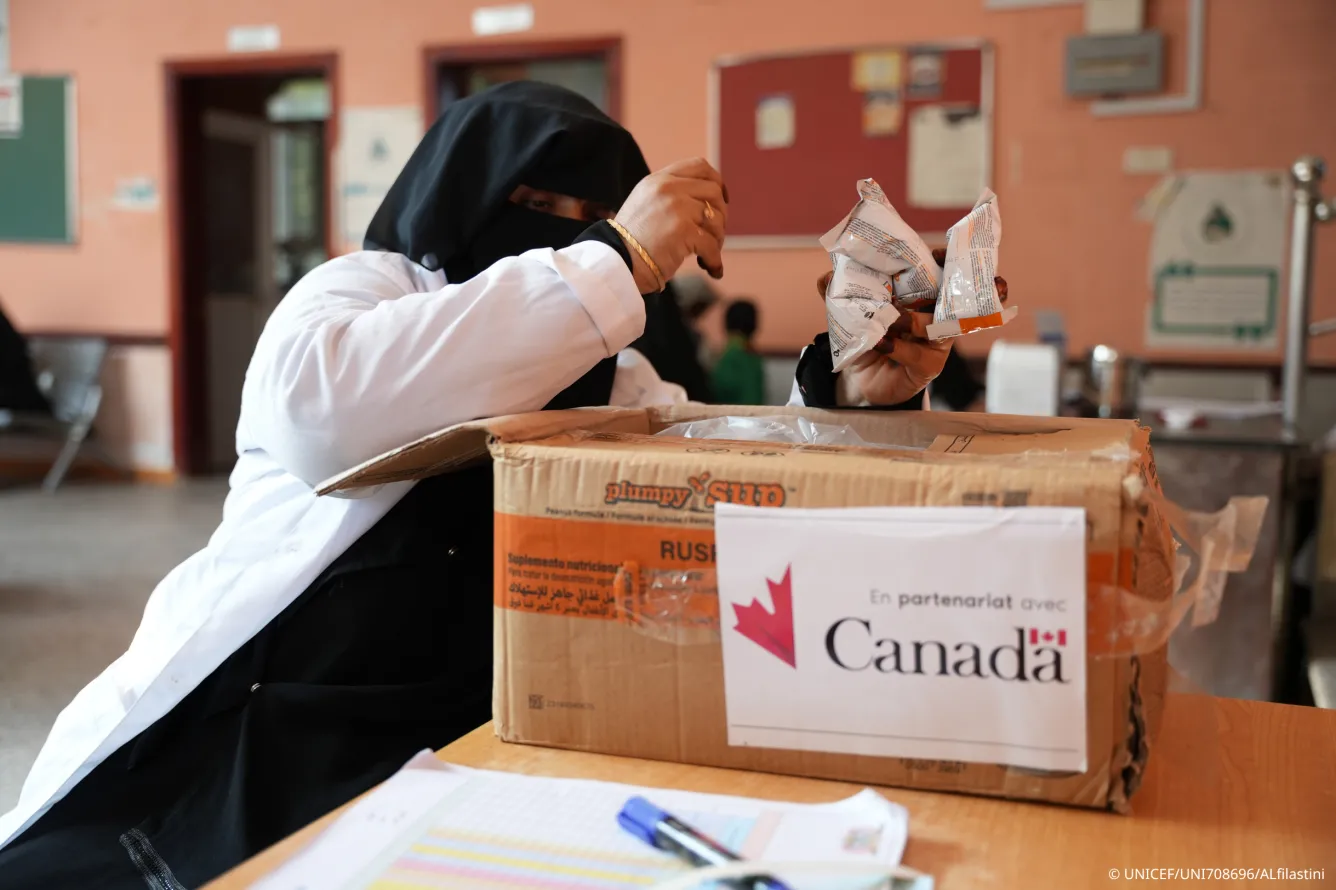
In Yemen, a health worker unpacks a carton of Ready-to-Use Therapeutic Food (RUTF) provided by UNICEF with support from the Government of Canada. Inside are about 150 packets of peanut-based paste, each one packed with life-saving nutrients proven to pull children back from the brink of starvation, even in conflict zones.
Malnourished children need to gain weight fast and RUTF can help a child gain up to two pounds per week. It requires no refrigeration or mixing and can be given at home by parents and caregivers. UNICEF is the world’s largest supplier of RUTF, securing up to 80% of global demand for ready-to-use therapeutic food.
Ready-to-Use Toys
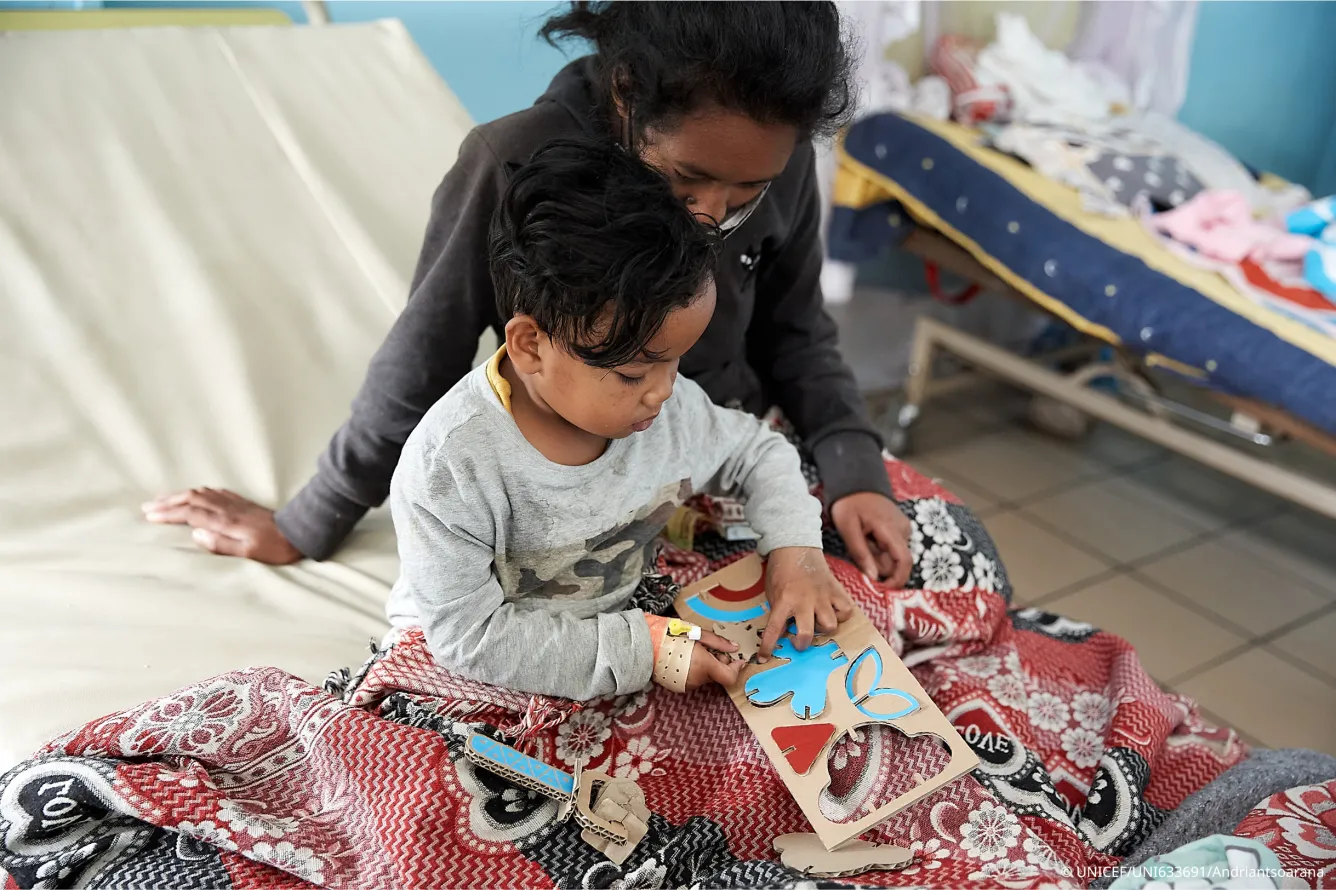
It might look like five-year-old Fifaliana is just enjoying some playtime with her nurse, but she’s actually undergoing important treatment for malnutrition at a health centre in Madagascar.
Play is an important part of the recovery process. Malnutrition can affect a child’s brain development, learning and emotional well-being. In many centers where children receive treatment, there’s little or no access to play materials. UNICEF, alongside partners, is turning the very boxes used to ship therapeutic food into pop-out toys designed to support cognitive and motor development. Printed directly on the flaps, these toys are simple, safe and ready-to-use!
Feeding Bowl and Spoon
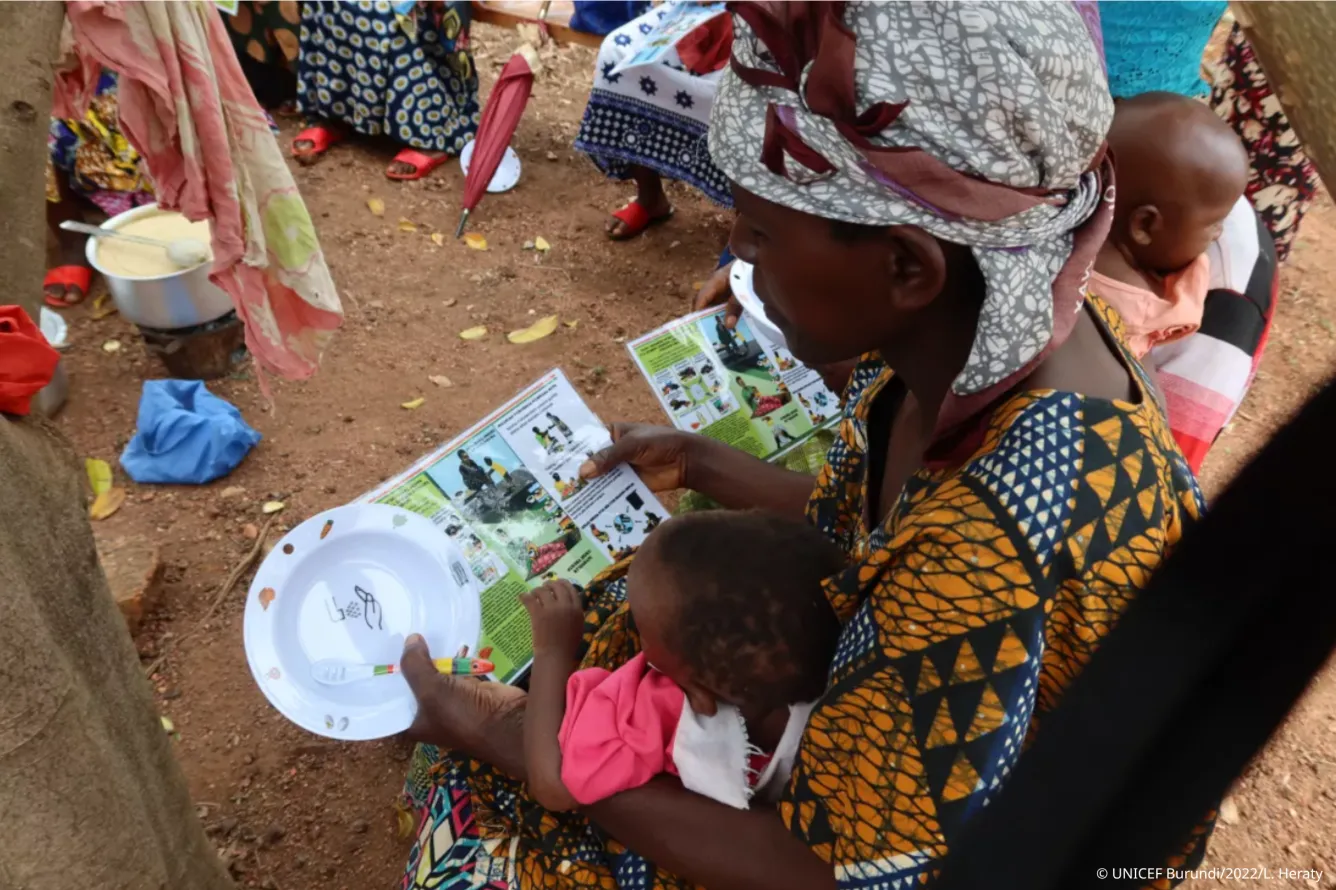
At a health centre near the Tanzanian border, Igiraneza Monic is leading a mother-to-mother support group. She’s what’s called a “Light Mother” in her community – a trained volunteer helping other mothers learn how to improve nutrition, health and hygiene for their children. Igiraneza uses a new tool to make that easier – a plastic feeding bowl and spoon. Designed by UNICEF, the bowl has built-in portion guides, drawings of diverse food groups, and reminders to wash hands. The slotted spoon helps ensure food is thick and energy-rich. Families take it home after the session to turn their learnings into practice.
Sprinkles
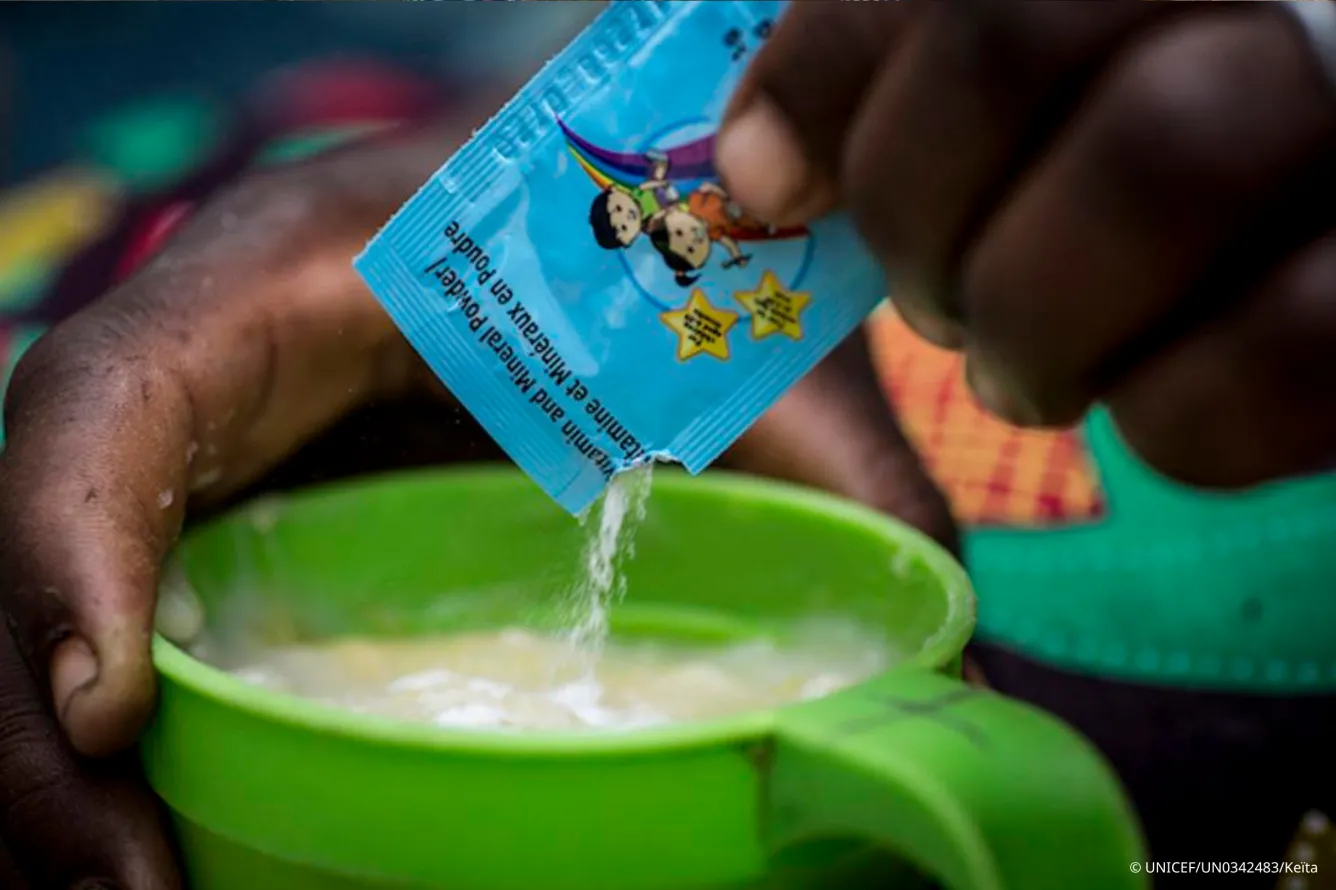
These aren’t the cake sprinkles you’d find in a bakery or your pantry. Sprinkles are Micronutrient Powders (MNP), the invention of Canadian pediatric nutritionist Dr. Stanley Zlotkin. MNP come in packets like the ones you may find containing sugar in your local coffee shop. They may be small, but they pack a big nutrient punch with 10 vitamins and five minerals, all essential for a growing child. MNP dissolve instantly into everyday meals, helping prevent anemia and other nutrient deficiencies that can lead to malnutrition.
These solutions are behind the incredible progress we’ve made in the fight against malnutrition in the past few decades, but it takes more than solutions to save lives. These solutions can only reach as far as the support behind them.
Recent funding cuts put this progress at risk. It is estimated that 14 million children around the world could have their access to nutrition support impacted this year alone. UNICEF is 100% funded by voluntary donations, and without sustained support, millions of children could lose access to the nutrition they need to survive and thrive.
With support from our incredible donors across Canada, we can win the fight against malnutrition and ensure no child’s future is cut short.
